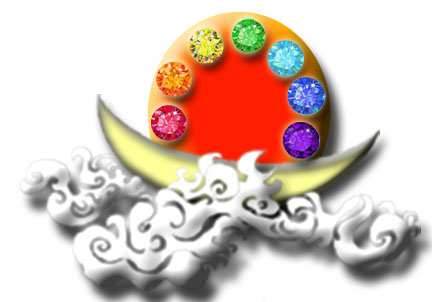Over the past year, we have reviewed all 128 “Evil and Erroneous Views” contained in the Supreme and Unsurpassable Mahamudra of Liberation (SAUMOL). In publishing this index of the evil views and the related one on the erroneous views that I hope to have completed soon, I went back and revised the titles to reflect the most recent translation of the SAUMOL, since some of you have heard this version when I provide classes on the preliminary translation of the text or you read a translation of the text at the temple. If there is time, I try and include at least the 38 “Evil Views” when I give introductory talks on the “Xiaman Most Excellent Oceanic Mind Essence.” Please click the particular view below to read the BLOG article on it. If the view is included in more than one article those articles will be linked to the one listed below. All these BLOG articles now also contain the brief discourse H.H. Dorje Chang Buddha gave on the matter.
Evil Views:
1: Acknowledging that ghosts and gods are one’s liberation masters
2: Acknowledging that attaining supernormal powers is the purpose of attaining accomplishment
3: Acknowledging that one may violate the precepts of the three vehicles
4: Acknowledging that one may forsake bodhicitta in one’s cultivation
5: Acknowledging that one need not abide by all of the precepts one has received
7: Acknowledging the eternalistic view that phenomena truly exist and are not illusory
8: Acknowledging that emptiness exists separate and independent from the mundane
10: Acknowledging that the dharmakaya is an entity with form
11: Acknowledging that by relying on the power of a Buddha, one can do bad things yet be free of sin
12: Acknowledging that cutting off self-attachment entails cutting off feelings for one’s parents
17: Acknowledging that transmigration within the six realms is a legend that is untrue
19: Acknowledging that personal interests are more important than the Buddha-dharma
23: Acknowledging position and status rather than the definitive truth of the dharma
24: Acknowledging that living beings came from the devolvement of Buddhas
25: Acknowledging it is acceptable to mix Buddha-dharma and non-Buddhist methods in one’s practice
26: Acknowledging that the law of cause and effect is illusory and unreal
28: Acknowledging that a master who has learned a great dharma must be one of great holiness
29: Acknowledging that one may put off cultivating oneself until tomorrow
30: Acknowledging a master who speaks falsely and deceives living beings.
34: Acknowledging that helping an evil master do evil is a dharma-protecting practice
CLICK for link to introduction to these evil views provided by the Office of H.H. Dorje Chang Buddha III and the Buddha Master’s comments. Please note that the translation of the titles given here will differ slightly from what has been revised in this blog. Neither translation reflects official approved translations and should be used for reference only.




Add comment